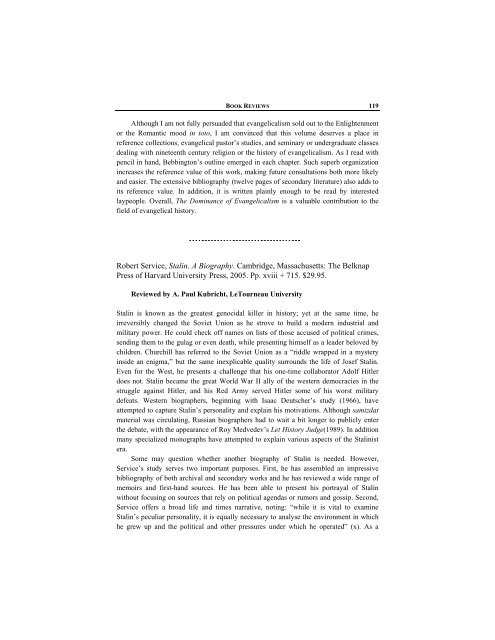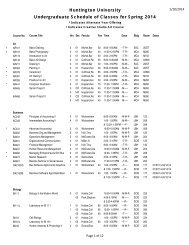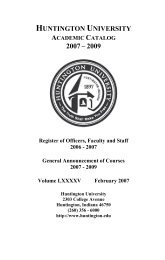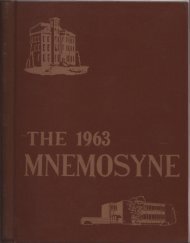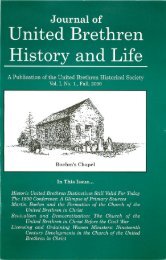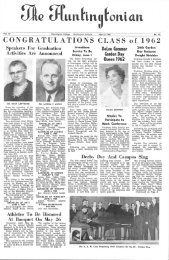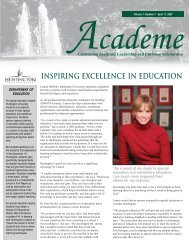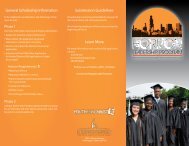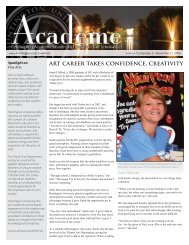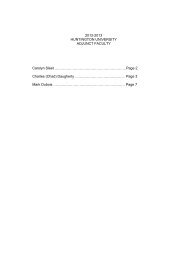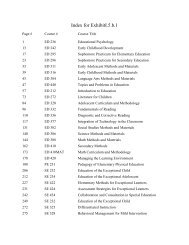Gillian Clark, Christianity and Roman Society - Huntington University
Gillian Clark, Christianity and Roman Society - Huntington University
Gillian Clark, Christianity and Roman Society - Huntington University
You also want an ePaper? Increase the reach of your titles
YUMPU automatically turns print PDFs into web optimized ePapers that Google loves.
BOOK REVIEWS 119<br />
Although I am not fully persuaded that evangelicalism sold out to the Enlightenment<br />
or the <strong>Roman</strong>tic mood in toto, I am convinced that this volume deserves a place in<br />
reference collections, evangelical pastor’s studies, <strong>and</strong> seminary or undergraduate classes<br />
dealing with nineteenth century religion or the history of evangelicalism. As I read with<br />
pencil in h<strong>and</strong>, Bebbington’s outline emerged in each chapter. Such superb organization<br />
increases the reference value of this work, making future consultations both more likely<br />
<strong>and</strong> easier. The extensive bibliography (twelve pages of secondary literature) also adds to<br />
its reference value. In addition, it is written plainly enough to be read by interested<br />
laypeople. Overall, The Dominance of Evangelicalism is a valuable contribution to the<br />
field of evangelical history.<br />
Robert Service, Stalin. A Biography. Cambridge, Massachusetts: The Belknap<br />
Press of Harvard <strong>University</strong> Press, 2005. Pp. xviii + 715. $29.95.<br />
Reviewed by A. Paul Kubricht, LeTourneau <strong>University</strong><br />
Stalin is known as the greatest genocidal killer in history; yet at the same time, he<br />
irreversibly changed the Soviet Union as he strove to build a modern industrial <strong>and</strong><br />
military power. He could check off names on lists of those accused of political crimes,<br />
sending them to the gulag or even death, while presenting himself as a leader beloved by<br />
children. Churchill has referred to the Soviet Union as a “riddle wrapped in a mystery<br />
inside an enigma,” but the same inexplicable quality surrounds the life of Josef Stalin.<br />
Even for the West, he presents a challenge that his one-time collaborator Adolf Hitler<br />
does not. Stalin became the great World War II ally of the western democracies in the<br />
struggle against Hitler, <strong>and</strong> his Red Army served Hitler some of his worst military<br />
defeats. Western biographers, beginning with Isaac Deutscher’s study (1966), have<br />
attempted to capture Stalin’s personality <strong>and</strong> explain his motivations. Although samizdat<br />
material was circulating, Russian biographers had to wait a bit longer to publicly enter<br />
the debate, with the appearance of Roy Medvedev’s Let History Judge(1989). In addition<br />
many specialized monographs have attempted to explain various aspects of the Stalinist<br />
era.<br />
Some may question whether another biography of Stalin is needed. However,<br />
Service’s study serves two important purposes. First, he has assembled an impressive<br />
bibliography of both archival <strong>and</strong> secondary works <strong>and</strong> he has reviewed a wide range of<br />
memoirs <strong>and</strong> first-h<strong>and</strong> sources. He has been able to present his portrayal of Stalin<br />
without focusing on sources that rely on political agendas or rumors <strong>and</strong> gossip. Second,<br />
Service offers a broad life <strong>and</strong> times narrative, noting: “while it is vital to examine<br />
Stalin’s peculiar personality, it is equally necessary to analyse the environment in which<br />
he grew up <strong>and</strong> the political <strong>and</strong> other pressures under which he operated” (x). As a


